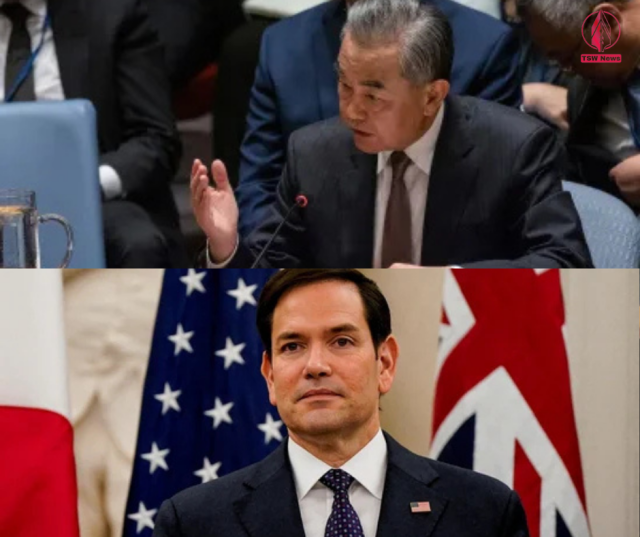China's Wang Yi Warns US Secretary of State Marco Rubio to “Behave”
- Posted on January 25, 2025
- News
- By Arijit Dutta
- 21 Views
Chinese Foreign Minister Wang Yi issued a veiled warning to US Secretary of State Marco Rubio during their first call, urging him to "behave responsibly." Rubio raised concerns about Taiwan and the South China Sea, reflecting ongoing US-China tensions under President Donald Trump's administration.

Chinese Foreign Minister Wang Yi issued a veiled warning to newly-appointed US Secretary of State Marco Rubio during their first official phone call since Rubio’s confirmation. Using a phrase that translates to "behave yourself," Wang conveyed a stern yet diplomatic message about US-China relations.
According to a Chinese Foreign Ministry statement, Wang's phrasing, akin to a teacher admonishing a student, implied an expectation of cautious and responsible actions. This marked the first direct engagement between the two officials following Rubio's history of vocal criticism of China during his tenure as a US senator.
Rubio, known for questioning China's human rights record, has previously faced sanctions from Beijing in 2020. During the call, the US State Department noted Rubio's emphasis on protecting US interests, raising concerns over China's actions in Taiwan and the South China Sea. However, the American statement refrained from referencing Wang’s pointed remark.
Experts view Wang's choice of words as a calculated blend of traditional Chinese diplomacy and subtle assertiveness, designed to signal expectations without derailing further dialogue. Zichen Wang, a research fellow at the Center for China and Globalization, noted, “The vagueness is intentional, reflecting China’s strategic use of language in diplomacy.”
Also Read: Content Creator Faces Backlash at Mahakumbh for Dressing as Arabic Sheikh
The phone call highlights ongoing tensions between the nations as US President Donald Trump pursues a hardline stance on China. Rubio’s comments during his confirmation underscored the need to interpret Chinese statements in their original context, hinting at the nuanced challenges in US-China relations under the new administration.




